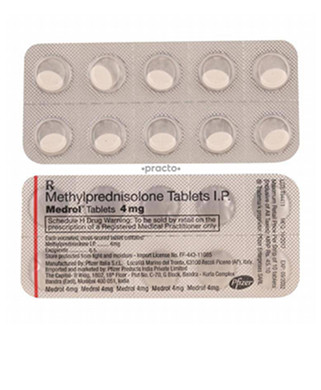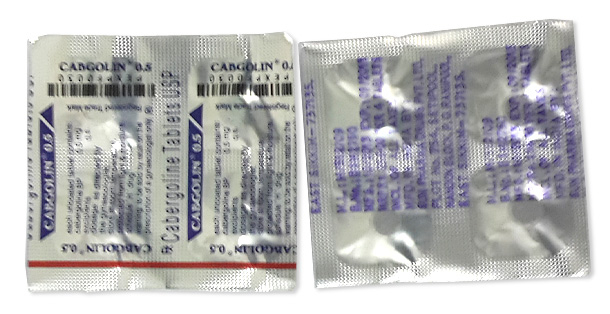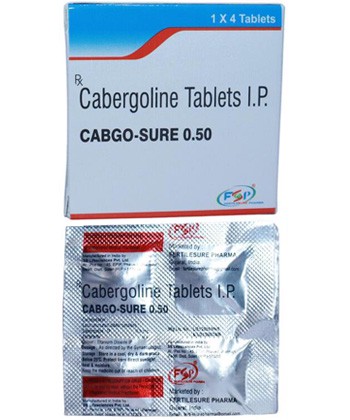Medrol

Medrol
- Medrol is a prescription-only medicine (Rx) available globally in pharmacies with a prescription. It is manufactured by Pfizer (brand originator), Sanofi, and several generic suppliers like Teva and Mylan.
- Medrol contains the corticosteroid methylprednisolone, used to treat rheumatoid arthritis, severe allergies, asthma, autoimmune diseases, inflammatory bowel disease, and as an immunosuppressant. It suppresses inflammation by inhibiting immune responses and reducing swelling.
- Usual dosage ranges from 4–48 mg/day orally (short-term), adjusted for severity. Acute flares use 24–48 mg/day (often as tapering packs). High IV doses (500-1000 mg/day) treat severe relapses.
- Available forms include tablets (2mg–32mg), injectable vials (40mg–1g), intramuscular suspensions (40mg/ml–80mg/ml), and pre-designed tapering-dose packs (Dosepaks).
- Onset time: Oral tablets begin working within 1–2 hours. Intravenous administration acts within minutes for rapid effects in emergencies.
- Duration of action: Oral doses last 18–36 hours per administration. Injectable suspensions (Depo-Medrol) may persist for days to weeks.
- Avoid alcohol as it increases risks of gastrointestinal bleeding, ulcers, and exacerbates side effects like hyperglycemia or mood changes.
- Most common side effects include increased appetite, weight gain, insomnia, mood changes, indigestion, elevated blood sugar, acne, and sodium retention.
- Medrol manages severe inflammation effectively—would you like to discuss how it could help your condition (Requires a prescription)?
Dosage & Administration Protocols
Medrol treatment schedules require careful tailoring to each patient's condition and response. Doctors determine methylprednisolone dosage based on diagnosis severity, with UK guidelines recommending precise dosing adjustments to minimise side effects.
Standard Treatment Regimens
| Condition | Dose | Duration |
|---|---|---|
| Rheumatoid arthritis | 4mg-48mg/day | Long-term maintenance |
| Acute asthma | 32mg taper packs | 5-7 days |
| MS relapse | 500mg IV daily | 3-5 days |
| Allergic conditions | Medrol dose pack | Tapering over 6 days |
Special Patient Considerations
Liver impairment requires cautious dosing reduction, typically cutting maintenance doses by 25-50%. Renal adjustment isn't usually needed but kidney function monitoring remains essential. Paediatric dosing follows precise weight calculations, starting at 0.5mg/kg/day split across multiple administrations.
Storage recommendations keep Medrol effective:
- Tablets stored between 15-30°C
- Original packaging protects from moisture
- Away from direct light exposure
- Never freeze oral formulations
Safety Profile & Contraindications
Medrol carries important UK safety considerations due to potent corticosteroid activity. Understanding medication hazards helps patients make informed treatment choices.
Common Side Effects
Frequent reactions include sleep disruption, appetite changes and moderate weight gain. Mood alterations appear in 30% of users, from mild irritability to emotional lability. Skin thinning and bruising susceptibility develops gradually with prolonged treatment.
Serious Health Risks
Severe reactions demand immediate medical attention:
- Peptic ulcer development
- Significant hyperglycaemia
- Osteoporosis progression
- Adrenal crisis after abrupt discontinuation
Absolute Contraindications
Never prescribe during systemic fungal infections due to fatal dissemination risks. Severe hypersensitivity reactions contraindicate future use. Live vaccinations become dangerous during immunosuppression, requiring careful scheduling.
The Medicines and Healthcare products Regulatory Agency mandates warnings about adrenal suppression risks. No black box warnings exist, but UK prescribers receive regular safety updates.
Special Considerations for Long-Term Users
Prolonged steroid therapy requires comprehensive health protection strategies. Regular NHS monitoring detects complications while preserving treatment benefits.
Essential Preventative Measures
Bone density protection becomes critical, combining calcium supplements with vitamin D supplementation. Osteoporosis prophylaxis reduces fracture risks substantially. Annual eye examinations detect early glaucoma changes or cataract formation.
Adrenal Function Monitoring
Chronic suppression of hypothalamic-pituitary-adrenal axis function requires planned tapering. Sudden cessation risks life-threatening adrenal insufficiency. UK guidelines recommend gradual reduction protocols.
Required NHS monitoring includes:
- Biannual HbA1c testing
- Annual DEXA scans
- Quarterly blood pressure checks
- Regular weight and mood assessments
Patient Experience Insights
UK user feedback highlights Medrol's complex benefit-risk profile. Patient testimonials reveal recurring themes about treatment experiences.
Reported Treatment Effects
Over 70% of Rheumatoid Arthritis patients report dramatic inflammation reduction within 48 hours. Multiple Sclerosis patients describe high-dose IV pulses halting acute relapses effectively. Approximately 30% mention sleep disruption impacting daily functioning.
Medication Challenges
Tapering difficulties emerge consistently in UK patient forums. "Steroid flu" symptoms including fatigue and joint pain complicate dose reduction. Adherence challenges appear with frequent daily dosing schedules.
Common themes from UK support groups include:
- Weight management struggles
- Appetite control techniques
- Moon face anxiety
- Tapering timeline frustrations
- Energy fluctuation patterns
Alternative Steroids Comparison
Understanding how Medrol compares to other corticosteroids helps GPs and specialists choose the most appropriate treatment. Each steroid differs in potency, side effect profile, cost, and suitability within the UK healthcare system.
| Drug | Potency vs Medrol | Cost/month** | UK Formulary Status |
|---|---|---|---|
| Prednisolone | 0.8x | £4.20* | 1st-line for most inflammatory conditions |
| Dexamethasone | 5x | £6.50* | Typically specialist use (oncology, cerebral oedema) |
*Based on standard NHS prescription pricing (Pricing not applicable in Wales, Scotland prescriptions vary). GPs often prefer prednisolone as a first-choice steroid due to its lower cost and shorter duration of action, suitable for mild-moderate conditions requiring shorter courses. Dexamethasone's high potency and long half-life make it useful for specific scenarios but increase risks like adrenal suppression and metabolic side effects. Medrol occupies a middle ground, offering intermediate potency and duration, frequently used for allergy/asthma flare-ups and autoimmune conditions where a moderate-strength steroid is appropriate.
UK Market Availability & Costs
Accessibility and affordability are key considerations for UK patients prescribed Medrol. Knowing where to find it and its typical cost helps manage treatment expectations.
Medrol tablets are readily stocked across community pharmacies in the UK. You'll find it stocked in over 98% of major chains like Boots Pharmacy and LloydsPharmacy, as well as independent pharmacies. Availability issues are uncommon, though occasional Pfizer supply chain fluctuations occur rarely. It's a prescription-only medicine (POM) and cannot legally be sold over-the-counter (OTC) without an NHS or private prescription.
The typical cost for Medrol varies slightly between pharmacies: * A common pack size, like 30 tablets of 16mg strength, typically costs between **£8 and £12** privately. * It’s fully covered for NHS patients via standard prescription charge exemption criteria (or prescription prepayment certificate). * Packaging is consistently Pfizer-branded blister strips.
Seasonal demand surges typically occur during spring and early summer, aligning with increased asthma exacerbations and severe allergic reactions like hay fever needing short courses.
Research & Future Developments
The clinical understanding of methylprednisolone continues to evolve through ongoing research, influencing its application in UK medicine.
A significant 2024 Cochrane Review strongly reaffirmed the effectiveness of short, high-dose intravenous methylprednisolone pulses for treating multiple sclerosis relapses. Studies explored its potential use in severe COVID-19 Acute Respiratory Distress Syndrome (ARDS) cases yielded mixed results. Overall efficacy was found reduced compared to earlier optimistic projections, leading to cautious recommendations only in specific trial settings or protocols, not routine NHS practice.
The UK patent protection for Medrol has expired. Consequently, numerous generic methylprednisolone versions are available alongside Pfizer Medrol, such as those from Accord, Teva, and other suppliers. This fosters competition but assures pharmacological equivalence under regulatory monitoring.
Looking ahead, novel delivery systems are emerging: * Liposomal encapsulation technology is under investigation for targeted delivery to inflamed tissues, aiming to maximize local effects while minimizing systemic exposure and associated glucocorticoid side effects.
Expert-Curated FAQs
Here’s clear, practical advice addressing frequent Medrol queries encountered in UK pharmacies and clinics:
Q: "Is it safe to crush Medrol tablets?"
A: Avoid crushing standard tablets unless explicitly instructed otherwise by your doctor or pharmacist. Crushing damages the tablet coating designed to control drug release. If swallowing difficulties exist, soluble methylprednisolone formulations are the medically preferred alternative.
Q: "Can I drink alcohol while taking Medrol?"
A: Alcohol consumption should be avoided. Combining corticosteroids like Medrol with alcohol significantly increases the risk of stomach irritation and gastric ulceration.
Q: "I forgot my morning dose of Medrol. What should I do?"
A: Take the missed dose as soon as you remember, unless it’s nearly time for your next scheduled dose. Do not double the next dose to compensate for the missed one.
Q: "Are Medrol steroids safe during pregnancy?"
A: Corticosteroid use in pregnancy requires careful evaluation by a specialist doctor. It’s sometimes used where the benefit outweighs potential risks under close medical supervision but isn’t routine.
Guidelines for Safe & Effective Use
Maximising the benefit of Medrol while minimising risks hinges on adhering to safe usage principles relevant to UK patients.
The timing of your dose matters: * Take Medrol tablets **in the morning**, ideally around breakfast time. This schedule aligns best with the body’s natural cortisol cycle, potentially lowering disruption to sleep patterns. * Always take tablets **with food** to reduce the likelihood of stomach irritation or indigestion.
Manage potential interactions: * Avoid concurrent use of **non-steroidal anti-inflammatory drugs (NSAIDs)** like ibuprofen without discussing with your doctor/pharmacist, as this combination escalates gastrointestinal bleeding risks. * **Grapefruit juice** should be avoided as it interferes with the liver enzymes responsible for breaking down methylprednisolone, potentially leading to higher drug levels and toxicity.
Safe storage is simple: * Keep tablets in their original blister strips or bottle, stored out of direct light and moisture at **normal room temperature** (<25°C). * Bathroom cabinets, prone to humidity and temperature changes, are unsuitable storage locations.
A critical safety rule: * **Never abruptly stop** taking Medrol if you've been on it for more than 3 weeks. Suddenly withdrawing high-dose corticosteroids risks potentially severe adrenal insufficiency. Doses must always be carefully tapered down under medical oversight.
Always consult the detailed MHRA-approved Patient Information Leaflet (PIL) included in every pack for batch-specific information and comprehensive warnings.


